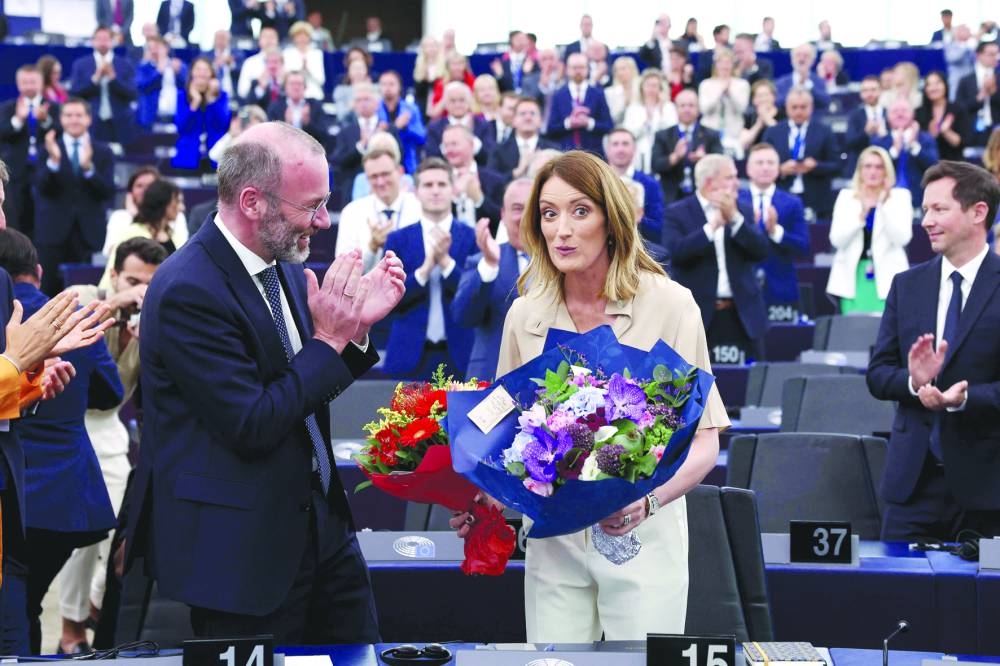The European Parliament voted overwhelmingly yesterday for Maltese conservative Roberta Metsola to remain its speaker, in the first crunch vote on the EU’s top jobs after elections in June.
Tensions are high in Europe as European Union lawmakers start their five-year term, with current European Commission President Ursula von der Leyen’s future on the line.
Hungary’s Prime Minister Viktor Orban, who sparked outrage among EU counterparts by visiting Russia and China, had been due to address the parliament, but his speech was postponed — officially because of a busy voting schedule.
As war rages on Europe’s doorstep, the bloc faces multiple challenges including a stagnant economy and growing global uncertainty, which leaders will have to confront head-on.
In the first major vote, current speaker Metsola, 45, won another two-and-a-half-year mandate after receiving 562 votes.
She is only the third woman to hold the post.
Metsola belongs to the biggest political group in the 720-seat parliament, the conservative European People’s Party (EPP), and she has been in the role since 2022. “This must be a strong parliament in a strong union,” Metsola said.
She later vowed to address the problems facing EU citizens including Europe’s “looming” housing crisis and promised to implement “proper” migration legislation.
“We will leave Europe a better place by creating a new security and defence framework that keeps people safe,” Metsola said.
She has been one of the EU’s most vociferous supporters of Kyiv and after the vote, she vowed “continued and unwavering support for Ukraine”.
Ukraine’s President Volodymyr Zelensky offered his congratulations to Metsola, adding that he looked forward to working closely with her.
“I greatly appreciate President Metsola’s personal involvement in supporting Ukraine,” he said in a social media post.
But all eyes will be on tomorrow’s vote when lawmakers decide whether to hand von der Leyen — also of the EPP — another five years as commission chief.
Since EU leaders struck a deal to endorse her candidacy in late June, von der Leyen has been scrambling to win over lawmakers in the main political groups. It could be a tight race. The polyglot German won by only nine votes in 2019.
“She needs to walk a fine line to get the support of different groups in the European Parliament,” said Elizabeth Kuiper, associate director of the European Policy Centre think tank.
Von der Leyen must satisfy lawmakers who do not want the EU to swerve from its focus on cutting carbon emissions to tackle climate change, while other MEPs want her to reduce the number of new environmental regulations.
If she fails to win the vote, EU leaders will have to propose a new name.
The far right made significant gains in June elections in the 27-country bloc, although a centrist coalition made up of the EPP, the Socialists, Democrats and Liberals is still the largest in the parliament.
Von der Leyen’s EPP has 188 seats. With its coalition partners it in theory has the numbers to meet the 361-vote threshold. But several MEPs have said they will vote against her in the secret ballot.
International
EU parliament re-elects speaker
Von der Leyen in focus as vote for EU Commission chief tomorrow

Roberta Metsola holds a floral bouquet while the parliament applauds her after being elected during the first plenary session of the newly-elected European Assembly in Strasbourg yesterday. (AFP)
